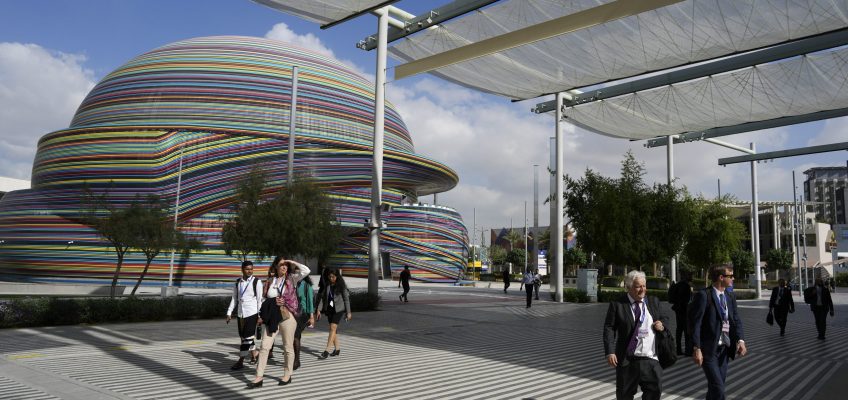The specter of Donald Trump regaining the presidency is casting a pall over California’s sunny presence at this week’s COP28 climate negotiations.
Global admirers of California’s approach to climate policy are worried about what might happen if Trump wins and resumes his attacks on the Golden State, California Air Resources Board Chair Liane Randolph said in an interview from Dubai, United Arab Emirates.
“I’ve definitely had a few people ask me, ‘What do you think will happen? Do you think he’s going to win?’” she said. “They ask that question with huge amounts of concern.”
California has long positioned itself as a stable partner on climate change in the face of national division. Former Gov. Jerry Brown defiantly flew to COP23 to push for ongoing collaboration after Trump pulled out of the Paris agreement. “We will continue to make progress, regardless of who leads our federal government,” Natural Resources Secretary Wade Crowfoot said on a press call before this year’s conference.
But Randolph said international partners familiar with the U.S. legal system are digging deeper, asking how a Trump presidency will affect California’s ability to meet its electrification targets for cars and buildings — one of the main things California is trying to promote at the conference.
They’re also particularly worried about California’s special permission under the Clean Air Act to set stricter-than-federal emissions rules for vehicles and heavy-duty equipment. Trump’s EPA revoked a California waiver to set its own fuel economy standards, and even after Biden reinstated it, it’s still a live issue: Seventeen red states, led by Ohio, are currently challenging the constitutionality of the entire waiver program before the Supreme Court.
“Some of the folks we work with, like our partners in Canada, for instance, they know the system really well and they’re like, ‘What do you think the Supreme Court is going to do with the Ohio litigation? Is that going to cause issues with your waiver? And then what happens if Trump gets in and then you have a federal government that’s not defending the waiver?’” Randolph said. “They understand the stakes.”
Randolph is optimistic that a Trump presidency won’t happen. But she’s assuaging her international partners on two fronts in case it does:
One, she said, the auto industry has already come around more on the issue of electrification.
Major automakers backed Trump’s blocking of the California waiver in 2019 to set stricter-than-federal fuel economy standards. But they opposed British Prime Minister Rishi Sunak’s move earlier this year to delay the U.K.’s gas car ban from 2030 to 2035.
“The automakers were like, ‘Wait a minute, we’re planning for this transition,’” said Randolph. “So I don’t think that there’s a lot of support for backtracking on climate politically.”
The second thing is that a lot of California’s climate work happens under the state’s own authority. She pointed to the cap-and-trade program and the low-carbon fuel standard as examples.
She also thinks that the waivers will prevail in court. At a September panel, judges expressed skepticism at some of the plaintiffs’ claims and spent a significant amount of time questioning if they could demonstrate injury because of the waiver.
‘We’re still not in attainment [with clean air standards],” said Randolph. “That’s why I’m hopeful that the courts at the end of the day will realize that this is the fundamental reason why Congress took action and that hasn’t changed.”
Like this content? Consider signing up for POLITICO’s California Climate newsletter.


Leave a Reply